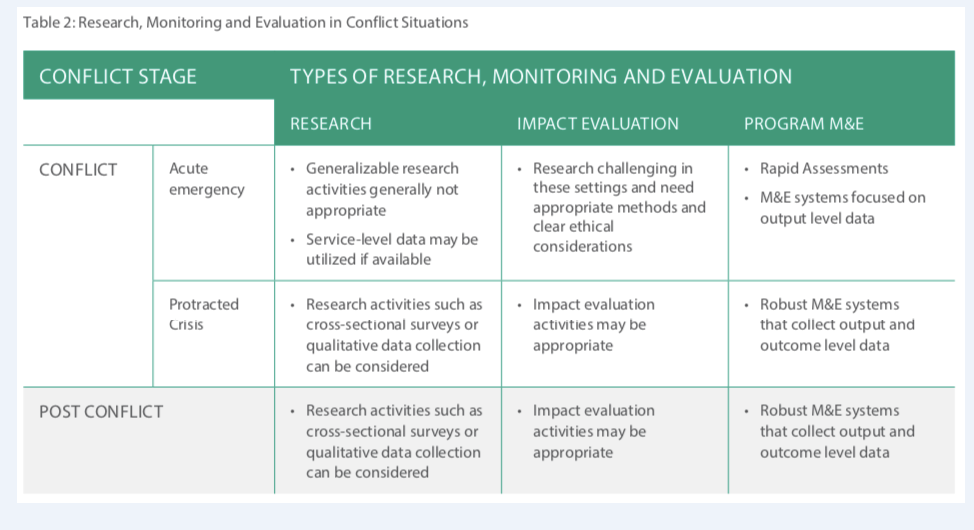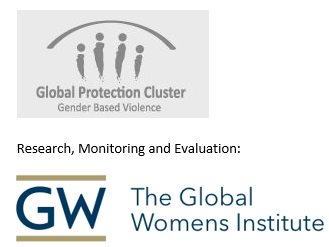Research and M&E activities are possible during any stage of a crisis, but different data collection approaches may be appropriate at different phases of a conflict. Always consider the stage of the crisis as security considerations and the urgency of survival services might mean that large scale data collection activities are not always possible.
Acute Emergency – An acute emergency period refers to a heightened state of conflict including active civil conflict and the ongoing displacement of people. During acute emergencies, immediate life-saving services are most urgent for the post-conflict community. General research activities may not be appropriate but rapid assessments and the collection of routine M&E data focused on outputs and service-delivery data can be collected.
Protracted Crisis – While still an emergency, a protracted crisis refers to a more stable and predictable phase for people living in IDP or refugee camps. The population may not be facing direct armed conflict but may indirectly be experiencing the effects of a crisis (displacement, lack of resources, lack of infrastructure and functional state services, proliferation of arms, etc.) “These conditions may be compounded by other conditions such as famine leading to the development of a complex emergency.” (The Global Women’s Institute, 2018). During this period, research activities such as cross-sectional surveys (including prevalence studies if needed) or qualitative data collection can be considered, impact evaluation activities may be appropriate and a robust M&E system that collects output and outcome level data can be established.
Post-conflict – During the post-conflict phase, many insecurities and threats remain for people affected by the conflict. Many people return to areas that they previously fled which may no longer have infrastructure and services available. Periodic shocks such as smaller conflicts, hyperinflation and economic instability, and outbreak of disease may continue to affect these communities. During this period, similar research activities, impact evaluation activities, cross-sectional surveys and routine M&E data, as during a protracted crisis can be collected.
These phases of crisis do not always occur in a linear pattern but can often occur in a cyclical pattern. Different phases can occur in parallel in different parts of a country and phases can shift from acute conflict to protracted crises to post conflict and back again. Therefore, always carefully consider whether the stage of a crisis will affect your ability to ensure the safety and security of both your respondents and data collection team, which is of paramount importance and should be priority. Ethical considerations regarding research on VAWG will be discussed in further detail below. The chart below shows different research and M&E possibilities during different stages of a crisis.

The Global Women’s Institute. 2018. Gender-Based Violence Research, Monitoring, and Evaluation with Refugee and Conflict-Affected Populations: A Manual and Toolkit for Researchers and Practitioners. Page 20.
